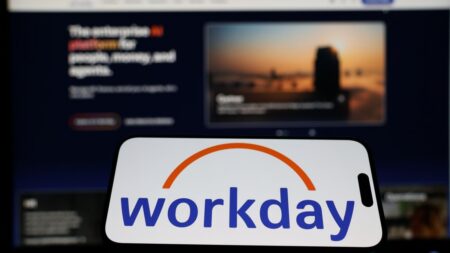Over the last decade, many CFOs have elevated their role from backroom cost managers to strategic boardroom advisers. Those CFOs have found additional success by advising on the strategies that create opportunities for the organization. Today, CFOs are becoming more involved with planning, ranging from expansion opportunities to technology investments to pricing strategies.
Those same CFOs have increased their functional scope near-exponentially from directing finance-centered accounting activities to leading cross-functional teams that span sales, distribution, marketing, finance, customer service, HR, and other critical areas. In other words, CFO responsibilities have expanded from cost control, governance, and closing the books to driving enterprise-wide digital growth and discovering new revenue streams.
The roiling global acceleration economy is now forcing CFOs to double-down on their efforts to fuse business strategy with technology strategy to help their companies thrive.
The following two points will help CFOs drive performance and profits for their companies in 2022.
Automate Everything
First and foremost, finance leaders must get their own houses in order. This means 100% automation across all finance operations – an enviable maybe even Herculean task very few (if any) CFOs will fully achieve. Just the same, automation is the lifeblood of transformation and, as such, every drop counts.
Regrettably, only 19% of CFOs have automated nearly all their finance processes and are currently handling financial reporting digitally, according to a recent Workday survey.
While It is true that many CFOs are still playing digital catchup, the causes can not be attributed to a lack of understanding or affinity for technology. Nor is it due to a conservative, risk-averse personality, which is stereotypical and often wrong.
CFOs are often faced a near-insurmountable volume of disjointed, manual, paper-based process that falls under the purview of finance operations. What’s more, the pandemic-inspired Great Resignation has exacerbated an already acute shortage of digital talent among finance teams. Finance teams are also faced with the mind-bending scope, scale, and availability of solutions and services currently available, which are coupled with the blistering pace of technological advancement and innovation, a bit of analysis paralysis is to be expected.
According to a recent Gartner survey, 82% of CFOs report that their investments in digital are accelerating in 2022 and, moreover, CFOs, controllers, and heads of financial planning and analysis (FP&A) are all focused on digital initiatives that will lay the groundwork for an autonomous future — one in which finance operations are increasingly driven with little human intervention by hyperautomation, artificial intelligence, blockchain, and quantum computing.
Automating low-hanging processes such as bookkeeping, accounts payable, invoicing and accounts receivable, tax compliance, payroll, and expense management, among many other tedious, time-consuming processes, not only ensures accurate and consistent financial information but also provides a critical foundation for increasingly autonomous operations.
Mentor a Team of Digital Prodigies
To survive and thrive as a CFO today demands full-throttle digital learning, way beyond simple data and digital literacy. Closing the books is mere table stakes, with best-in-class organizations getting it done in days and reporting intelligence in real-time.
CFOs must continue to invest in building their team’s digital prowess. This includes keeping team members up to speed on the wide range of applications powering myriad finance operations. Finance teams must know their reporting and business intelligence capabilities like the back of their hand, and equally vital, know where these capabilities fall short. They must constantly study best practices and continually measure where and how their organization’s digital growth fares in relation to peers, industry leaders, and even cloud-native startups.
Gartner reports that 75% of finance leaders say they expect to spend time on developing digital skills in 2022, and findings from a global CFO survey just announced by Workday reveal that CFOs are eager to invest in cutting-edge technologies that will help them attract and retain the talent needed to future-proof their teams.
The survey also found that finance leaders are prioritizing new hires with artificial intelligence (AI) and machine learning (ML) experience, as well as those with analytics and data storytelling skills – traits CFOs were not searching for five years ago, according to Workday.
None of us knows for certain what the future will hold, but we all have a responsibility to be thinking about what’s likely to happen and to prepare for it. In the finance function, that means working now to get the right people and technology in place to take advantage of the inevitable disruption ahead.
As we move into 2022 and beyond, CFOs must build upon their hard-earned tech cred and take their finance operations to the next level.








